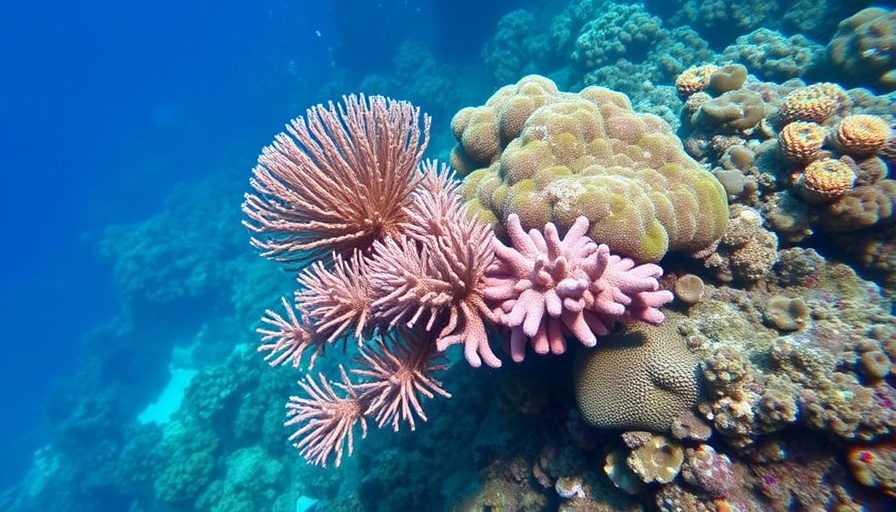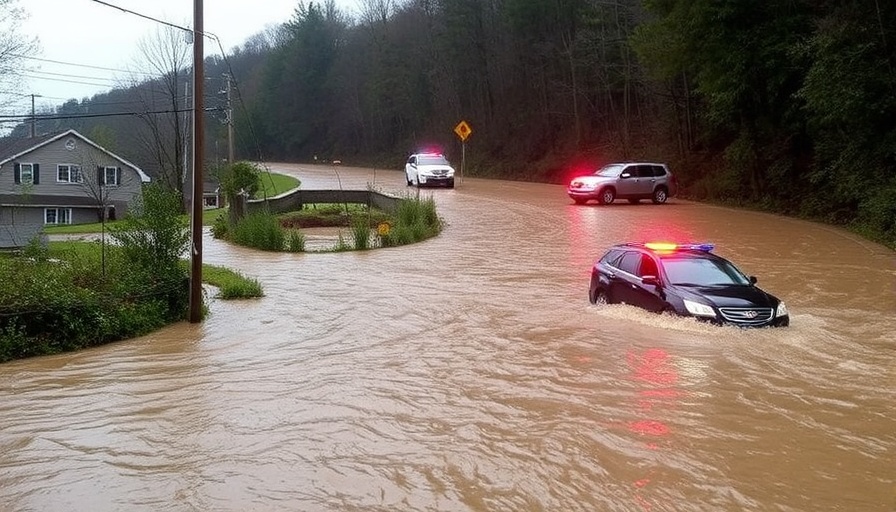
The Urgent Need to Revive Florida's Coral Reefs
The state of Florida's coral reefs is alarming, having lost about 90% of their healthy coral cover in the past four decades, a reality that reflects the detrimental effects of climate change and oceanic pressures. The coral reefs, vital to marine ecosystems and local economies, have been under siege due to rising ocean temperatures. This dire situation has incited a coalition of marine scientists to take significant action by engaging in coral restoration efforts that are crucial for not just the reefs but the entire marine life that relies on them.
Resilient Solutions: A New Hope for Elkhorn Coral
Central to these restoration efforts is the elkhorn coral, which, despite being critically endangered, is recognized for its hardiness and rapid growth rate. Scientists at the Keys Marine Laboratory and the Florida Aquarium have devised a method to cultivate these resilient coral species in controlled environments. Recently, they introduced over 1,000 juvenile elkhorn corals to a temperature-regulated setting where they can find their footing and prepare for transplantation to various offshore sites.
These juvenile corals represent a hope for regenerating Florida's marine habitats. The elkhorn species can grow as much as 4 inches (10 cm) each year, and their structure provides essential shelter and support for diverse marine creatures, making their cultivation a priority. By mixing genetic material from various parent corals, scientists aim for a diverse genetic pool that stands up better to environmental changes.
Understanding the Broader Impact: Why Coral Matters
Coral reefs do much more than dazzle divers; they serve as ecosystems, protect coastlines, and nurture marine biodiversity. They're also critical to the economy, particularly in coastal communities where tourism revolves around marine experiences. The decline of reefs threatens fisheries, tourism, and the natural protection these structures provide against storms and erosion.
The restoration project’s success could pave the way for future initiatives aimed at reinvigorating dying coral systems. As scientists monitor the health and growth of planted corals over time, vital data will emerge, setting benchmarks for larger scale restoration efforts. Every coral that survives contributes to the gene pool, allowing for a potentially resistant lineage of elkhorn corals ready for the challenges of a changing climate.
A Step Toward Sustainability and Preservation
Marine biologists and key organizations involved in this restoration project are also emphasizing the importance of sustainable practices in marine conservation. Their work aligns with a wider movement toward environmental stewardship, encouraging communities and individuals to rethink their impacts on marine ecosystems.
This effort exemplifies how local action can lead to impactful change. As residents and stakeholders in Dumfries seek to create sustainable communities, engaging with marine conservationists and understanding the significance of ecosystems like coral reefs can enrich local culture and promote environmentally conscious lifestyles.
What You Can Do to Support Coral Restoration Efforts
One of the most approachable ways to get involved in coral restoration is through advocacy and education. Engaging with local environmental organizations or participating in community discussions about marine conservation can raise awareness. Additionally, supporting eco-friendly tourism and making sustainable lifestyle choices will indirectly benefit coral habitats.
As citizens, buyers, and investors in Dumfries, understanding the implications of our choices can cultivate more conscious communities. This attitude supports the kind of proactive measures needed for ensuring coral reefs, and by extension, our planet’s health.
Ultimately, preservation efforts like these are not just the responsibilities of scientists but a collective mission for every individual who cherishes our planet. If you care about sustainability and wish to engage in meaningful dialogue about our responsibilities, consider reaching out to your local environmental groups and adding your voice to the cause.
 Add Row
Add Row  Add
Add 





 Add Row
Add Row  Add
Add 








Write A Comment